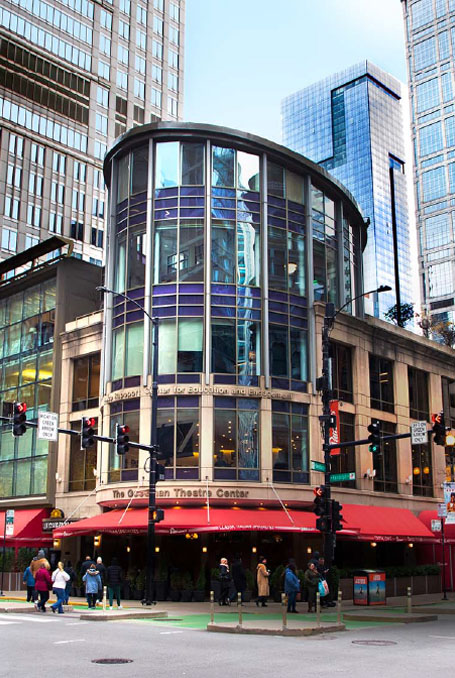Chicago Nursing Home Falls Attorneys
Chicago Lawyers Representing Victims of Falls Due to Nursing Home Neglect
Nursing homes are meant to provide a safe and supportive environment for elderly or disabled residents who may require assistance with daily activities. However, issues such as neglect and abuse at nursing homes can put residents at risk of suffering injuries. Falls are a significant concern in nursing homes, and these accidents can put the health and well-being of residents at risk. The personal injury lawyers at Schwartz Jambois can provide legal help in cases where fall injuries occur at nursing homes, helping determine who was responsible and ensuring that a resident will be able to receive compensation for their damages.
Causes of Falls in Nursing Homes
There are several factors that contribute to fall incidents among nursing home residents, including:
- Environmental hazards: Poorly maintained flooring, inadequate lighting, cluttered walkways, loose rugs or carpets, uneven surfaces, and lack of handrails can all increase the risk of falls.
- Mobility issues: Many nursing home residents have limited mobility due to age-related conditions such as arthritis or neurological disorders like Parkinson's disease. Weakness in muscles or joints can make it difficult for them to maintain balance while walking or transferring from one place to another.
- Medication side effects: Certain medications prescribed for older adults may cause dizziness, drowsiness, or impaired coordination. These side effects can significantly increase the likelihood of falling.
- Poor vision: Visual impairments such as cataracts or glaucoma can affect depth perception and visual acuity. This makes it harder for nursing home residents to navigate their surroundings safely.
- Cognitive impairment: Residents with dementia or Alzheimer's disease often experience confusion and disorientation. They may forget where they are going or become easily distracted by their surroundings, leading to an increased risk of falls.
- Improper use of assistive devices: Many nursing home residents rely on assistive devices like walkers or canes to maintain stability. However, if these devices are not properly fitted or are used incorrectly, they can actually contribute to falls rather than prevent them.
Unfortunately, neglect by nursing home staff can significantly increase the likelihood of fall injuries. Residents who do not receive the proper supervision, assistance, or medical care may be seriously injured in fall accidents. Fall injuries may also occur due to physical abuse of nursing home residents by staff members or others.
Types of Injuries Resulting from Falls
Falls in nursing homes can result in a wide range of injuries, including:
- Fractures and broken bones: The most prevalent injuries resulting from falls are fractures and broken bones. Hip fractures are particularly common among elderly people, and they often require surgery and extensive rehabilitation.
- Head injuries: Falls can also lead to concussions or traumatic brain injuries (TBIs) when an elderly person strikes their head on the floor or nearby objects. These injuries may have long-lasting effects on a person's cognitive function, mobility, and overall quality of life.
- Cuts and cruises: Minor cuts, abrasions, and bruises are frequent consequences of falls. While these may seem relatively minor compared to other injuries, they still require proper medical attention to prevent infections or other complications.
- Sprains and strains: Twisting or landing awkwardly during a fall can cause sprained ligaments or strained muscles. These soft tissue injuries can be painful and limit mobility for an extended period.
- Panic attacks and emotional trauma: Experiencing a fall can be emotionally distressing for nursing home residents. An accident may lead to anxiety about falling again in the future, potentially causing panic attacks or exacerbating existing mental health conditions.
Because many elderly people are in frail health, fall injuries can lead to complications, even if they do not initially seem serious. Limited mobility following a fall may lead to issues such as bedsores, or traumatic brain injuries may make existing cognitive issues worse. If a fall occurred due to negligence at a nursing home, a patient may be at risk of suffering further harm due to ongoing neglect by staff members.
Contact Our Illinois Nursing Home Fall Injury Attorneys
If your loved one has suffered a fall-related injury in a nursing home, it is crucial to take action to protect their interests. The experienced attorneys at Schwartz Jambois can help determine whether a fall occurred because of neglect or abuse, and we can help you pursue compensation and ensure that your loved one will receive the proper care. We have extensive experience advocating for the rights of elderly people who have been harmed due to negligence or inadequate care. We are here to help you navigate this challenging situation and seek justice for your loved one. Please contact us at 312-782-2525 to schedule a complimentary consultation.




 312-782-2525
312-782-2525



